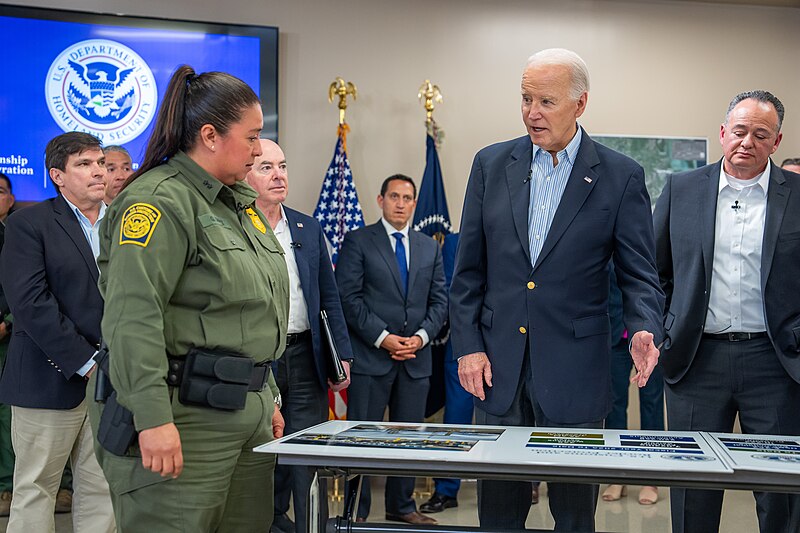- 14 3402-5578
- Rua Hygino Muzy Filho, 737, MARÍLIA - SP
- contato@latinoobservatory.org
 Foto: The White House
Foto: The White House
The Biden administration has begun reopening a migrant sponsorship program, suspended in early 2023 due to fraud concerns. The program, which began in late 2022 and expanded in 2023, aimed to divert migrants from the U.S.-Mexico border, allowing up to 30,000 people from Cuba, Haiti, Nicaragua and Venezuela to fly to the U.S. on a monthly basis, as long as U.S. sponsors signed up to support them. That program, along with a policy by Mexico to take back citizens of those countries who cross the border illegally, has significantly reduced crossings deemed illegal.
In July 2023, the program was paused due to concerns about fraud in sponsor applications. Now, the Department of Homeland Security (DHS) has resumed the initiative with new security measures, such as a fingerprinting requirement and a stricter screening of sponsors' financial and criminal records. In addition, recurring sponsors will be watched more closely to prevent abuses in the system, according to CBS News.
The sponsorship policy, known as CHNV (referring to the initials of the four countries involved), is part of the Biden administration's strategy to reduce illegal immigration. Under this policy, more than 500,000 migrants have already arrived in the US. The Biden administration has also created other legal pathways to entry into the U.S., such as an app that makes scheduling easier for those waiting in Mexico. At the same time, it increased penalties for those who cross the border illegally, and limited access to the asylum system between official entry points.
The Biden
administration justifies the CHNV program on humanitarian grounds, due to the
economic and political crises in these countries and claims that the initiative
serves the public interest by reducing illegal immigration by offering legal
alternatives. However, the program has faced opposition from Republican-led
states, which consider it illegal, arguing that it circumvents limits imposed
by Congress on immigration. However, a federal judge in Texas rejected that
legal challenge, saying that the states had not demonstrated harm caused by the
policy.











